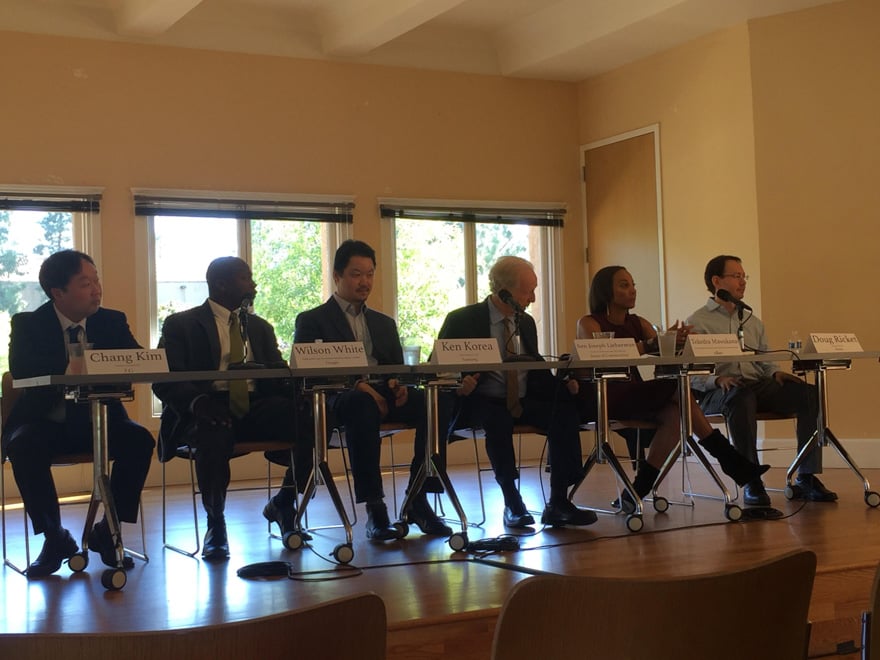
Policymakers, technology experts and business leaders engaged in conversation on Wednesday to explore the wide-ranging consequences of the Internet-born generation and how to best prepare for the next billion users.
The panel of six speakers featured in “The Next Billion” event hosted by Stanford in Government (SIG) included former Connecticut Senator Joseph Lieberman, eBay Vice President of Global Communications, Relations and Public Policy Tekedra Mawakana and Google Public Policy and Government Relations Senior Council Wilson White.
“Almost every great advance has unfortunately been exploited by those with unethical or violent ambitions,” Lieberman said.
Lieberman discussed the important role of the legal system in protecting the most vulnerable people while acknowledging the difficulty of designing laws that promote innovation without compromising freedom.
The panelists also discussed the limitations of increasing dependence on technology and the disadvantages that come with inability to access the internet. Four billion people, the panelists noted, are currently disconnected from the internet.
“We know that simply having access to the internet greatly influences standard of living and opportunities,” Wilson said.
Policymakers and leaders have been focusing on expanding technology’s reach to regions that currently have little access in hopes of creating more equal business opportunities. “The Next Billion” speakers discussed Facebook CEO Mark Zuckerberg’s goal to provide free Wi-Fi to areas of rural Asia, but they criticized the limited body of Wi-Fi sites citizens would have the ability to access under the plan.
Mawakana continued to argue for the value of a free and open Internet for global facilitation of small businesses.
“There can’t be gatekeepers,” Mawakana said. “If the Internet means only a certain geographic market or access to certain sites and those sites don’t enable small businesses, they will not be helpful.”
Chang Kim, the general council of LG, described the negative consequences of government intervention on developing nations.
“We want to get products out at the lowest price, but there are other restricting factors like patents,” Kim said.
Other topics discussed included the Internet’s role in growing political polarization, technology as a vehicle for promoting extremism and social media’s potential to advance social movements like the Arab Spring.
Nikhil Bhattasali ’18, the director of general events for SIG, explained the student group’s choices in forming the highlighted panel of speakers.
“We chose to have a mix of technology and government representatives,” Bhattasali said. “As new technologies become more important, there will be a growing connection between these two cultures.”
Contact Mini Ruda at mruda ‘at’ stanford.edu.
